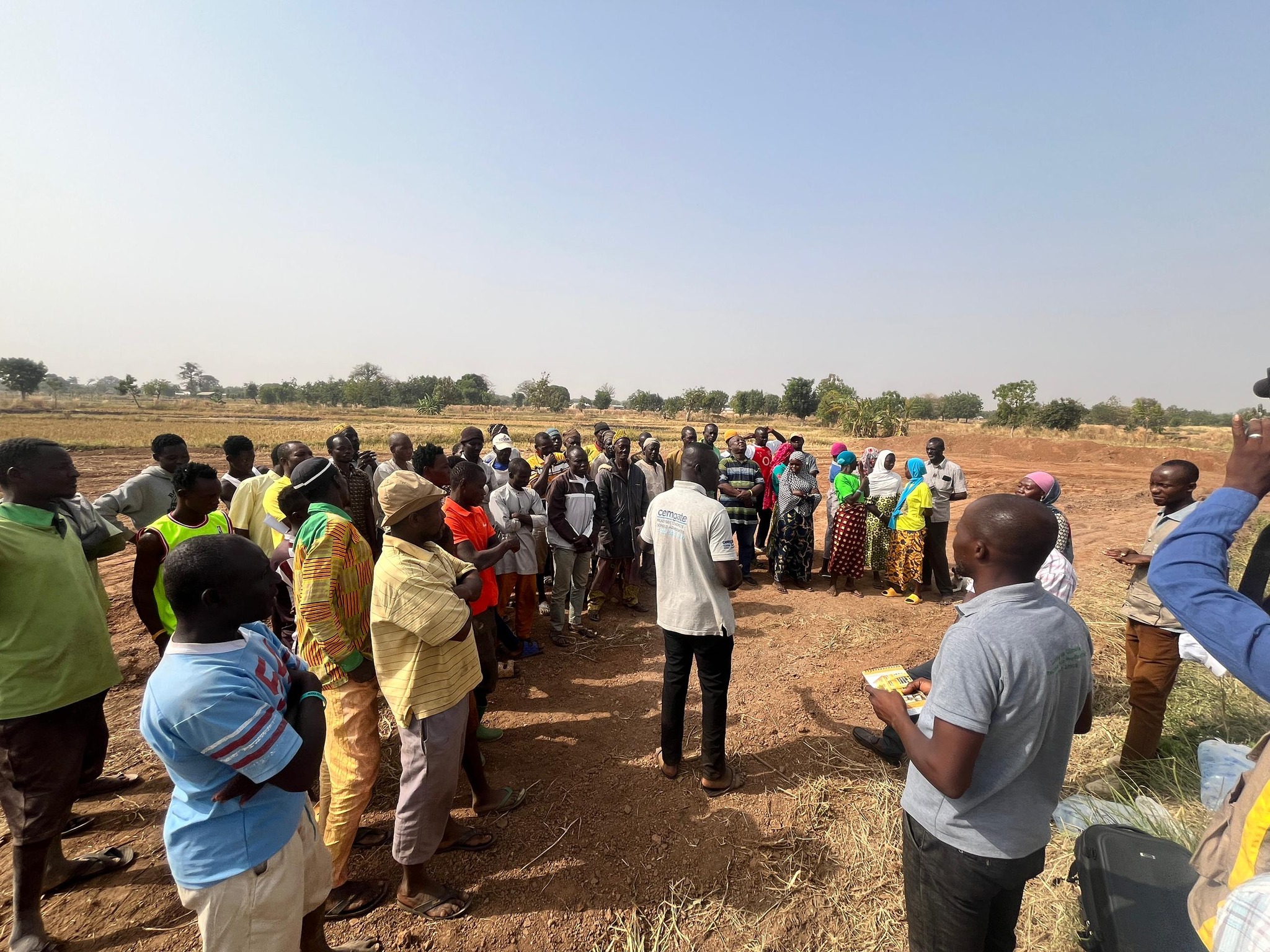CSIR SARI, as part of a broader initiative spanning 13 West African countries, is leading efforts to scale up climate-resilient rice production practices in Ghana. The project addresses the significant impact of climate change on farming, particularly rice cultivation, and promotes innovative, research-backed practices to sustain yields.
One key aspect of this initiative is the adoption of the System of Rice Intensification (SRI), a methodology with four core principles aimed at improving rice yields and resource efficiency. The principles include:
1. Using younger seedlings: Farmers are encouraged to transplant seedlings earlier, within 14 days of growth, to improve plant health and productivity.
2. Line planting with wider spacing: The recommended 25 cm x 25 cm spacing enables farmers to use rotary weeders, reducing weed competition and improving field management.
3. Alternative Wetting and Drying (AWD): This technique conserves water by carefully managing irrigation schedules.
4. Incorporating compost: This improves soil fertility and enhances plant growth.
Despite SRI’s proven benefits, adoption among farmers has been slow due to long-standing practices and skepticism. To bridge this gap, Csir Sari, has engaged farmers from the start, providing hands-on demonstrations. Fields using SRI techniques are showcased alongside those using traditional methods, enabling farmers to compare yields and observe the benefits firsthand.
Today, farmers were invited to witness the maturity and harvest stages of rice fields employing SRI principles. The side-by-side comparison highlighted the improved yields and resource efficiency achieved with the new practices. This participatory approach aims to encourage widespread adoption and foster resilience in rice production amidst climate challenges.
CSIR SARI remains committed to empowering farmers with sustainable practices, ensuring long-term food security and productivity in Ghana’s rice sector. Despite SRI’s proven benefits, adoption among farmers has been slow due to long-standing practices and skepticism. To bridge this gap, Csir sari has engaged farmers from the start, providing hands-on demonstrations. Fields using SRI techniques are showcased alongside those using traditional methods, enabling farmers to compare yields and observe the benefits firsthand.
Farmers were invited to witness the maturity and harvest stages of rice fields employing SRI principles. The side-by-side comparison highlighted the improved yields and resource efficiency achieved with the new practices. This participatory approach aims to encourage widespread adoption and foster resilience in rice production amidst climate challenges.
Csir sari remains committed to empowering farmers with sustainable practices, ensuring long-term food security and productivity in Ghana’s rice sector.
Source:Mybrytfmonline.com/Kwabena Nyarko Abronoma




















































